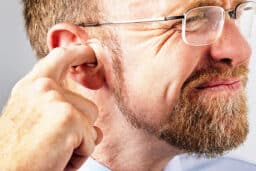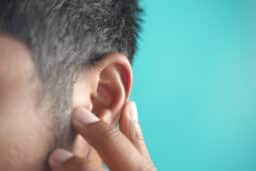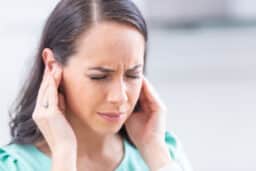How Hearing Aids Improve Your Work Life

Hearing loss can quietly shape your professional life. Strong communication is essential to career success, whether you’re leading meetings, answering phones, collaborating with colleagues or networking after hours at the Crossroads Tabletop Tavern. Approximately 15% of U.S. adults have hearing loss. Fortunately, hearing aids help you confidently participate in the workplace. How Hearing Aids Help…
Reconnecting with Loved Ones: Family Life After Hearing Treatment

You’ve probably heard that good communication is the key to a happy relationship. Most people apply this adage to romantic relationships, but it’s also crucial to maintaining a happy family dynamic. Let’s take a look at how hearing loss can interrupt healthy communication and how hearing aids can help bring you closer to your loved…
How Treating Hearing Loss Boosts Self‑Confidence

Approximately 28.8 million U.S. adults could benefit from hearing aids. When thinking of the perks hearing aids offer, clearer communication is probably the first that comes to mind. While clearer speech is one of the biggest upsides, fewer people think about how it can boost their confidence. Let’s take a look at three ways hearing…
How Can I Prevent the Occlusion Effect From My Hearing Aids?

The occlusion effect refers to the sensation that your voice sounds blocked, muffled or unnecessarily loud. It’s common in hearing aids, but you may have also noticed it when chewing food while wearing headphones. Suddenly, your sandwich at Grounds Central Station sounds like you’re chewing a bunch of nails. If you’re among the 15% of…
What to Know About Comorbidities and Hearing Loss

Comorbidity is the simultaneous presence of two or more medical conditions in one patient. While comorbidity doesn’t always mean one condition causes the other, addressing conditions that could increase your risk of health complications like hearing loss is still important. Common Hearing Loss Comorbidities A few conditions that may present with hearing loss include: The…
What Are the Different Types of Tinnitus?

It can be unsettling to hear a phantom sound in your ears, called tinnitus, whether it’s popping up for only a moment or settling in for the long run. There are a few different types of tinnitus and understanding which one you’re dealing with can help point you toward the right treatment. The Two Main…
Infections Linked to Hearing Loss

When people experience infections, they often consider the steps needed to get better and may not give much thought to the impact an infection could have on hearing. Whether you’re a frequent swimmer at Long Bridge Aquatics Center or your household is navigating illness during cold and flu season, it’s helpful to be aware of…
What Is Ear Crackling and What Can I Do About It?

If you’ve noticed a crackling or popping sound in your ears, it’s a common sensation. While this feeling is usually harmless, it can sometimes signal an underlying issue that needs attention. Here’s what you need to know about ear crackling and when you should act. Common Causes of Ear Crackling Earwax Buildup One of the…
How Noise Affects Your Mood and Memory

When most people think about hearing aids, they focus on the advantages of hearing more clearly. However, for the 28.8 million Americans who could benefit from hearing aids, these devices offer so much more than improved sound. Hearing aids contribute to bettering overall health in surprising ways. Strengthening Social Connections Conversations can become frustrating if…
Is Hearing Loss Making You Anxious?

Do you feel like you’re constantly worrying or on edge? There are many reasons why people can experience an increase in anxiety. However, you might be surprised to know that hearing loss is one of them. Hearing Loss Increases Anxiety Symptoms A study published in 2018 observed 3,928 adults aged 65 and older over a…